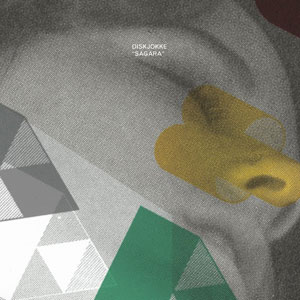Diskjokke Sagara
It’s no secret that the disco-tinged sound of Norway has had its flirtations with ambient […]

It’s no secret that the disco-tinged sound of Norway has had its flirtations with ambient music. Going through the scene-encompassing Full Pupp back catalog can at times reveal a surprising diversity of dubbed-out space noises that wouldn’t feel out of place on an Orb album. While in the past this side of the scene was traditionally paired with a four-on-the-floor beat and chugging Italo bass, it seems as though now things are changing. Take Sagara, the new album from Diskjokke, which represents a radical and surprising departure for the artist away from the dancefloor and towards a floating and more-or-less beatless soundscape.
This sound comes as a surprise for a number of reasons, but perhaps the most obvious is that Diskjokke has built a reputation for himself as a producer of relatively straightforward tunes. Standing among similar artists like Prins Thomas, Lindstrom, Todd Terje, and Blackbelt Andersen, Diskjokke helped shape the Norwegian “space disco” sound of the ’00s.
On Sagara, he takes the melodic exploration of that sound and strips it of most of its beat, creating an extended exercise in harmonic composition best heard on tracks like “Sengon” and “Namida,” which construct massive drone cathedrals populated by Music For Airports pianos, Gamelan chimes, and other seemingly randomly patterned noises. Yet while these sounds represent starkly different directions for Diskjokke, these sonic spaces are well traveled, and although a retread is kind of charming, going through them again isn’t a particularly fresh experience.
Sagara also breaks with Diskjokke’s previous material in that it seems to follow a programmatic narrative logic. The songs melt into one another to construct a larger sonic structure that functions better as a whole-in-flux than as isolated songs. This is unfortunately where the album runs again into a few problems with consistency and originality. On “Panutup” (but honestly through its entirety), Sagara mines territory dangerously close to the no man’s land of yoga studio music and the Pure Moods series.
Ultimately, while it does have its moments, Sagara feels more like a road sign than a destination. It points the way towards a possible new sound but lacks the polish, originality, and final touches that would make it stand out as a serious work of its own.

